Ponents Ponents (Com dissenyar una revolució: La via xilena al disseny)
Ponent

ArsGames
Associació cultural sense ànim de lucre amb seu a Barcelona, amb més de 15 anys d’experiència en la transformació social a través del videojoc i la tecnologia digital. El seu equip està format per professionals dels àmbits de la filosofia, les belles arts, la comunicació i el disseny, que aporten una mirada crítica i creativa a cada projecte; i el seu treball parteix de la convicció que les tecnologies digitals poden ser eines clau per imaginar i construir una societat més justa. Des d’una perspectiva transversal, l’entitat desenvolupa i gestiona projectes que integren art, pedagogia, recerca, inclusió digital i participació ciutadana. Aquesta activitat es concreta en iniciatives molt diverses: publicacions, grups de recerca, comissariat d’exposicions, esdeveniments de divulgació, tallers amb tecnologies lúdiques, desenvolupament de videojocs experimentals i col·laboracions amb col·lectius i institucions afins.
Ponent
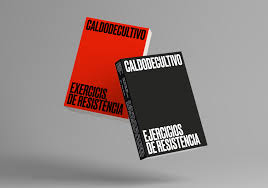
CALDODECULTIVO
CALDODECULTIVO és un col·lectiu la pràctica artística del qual busca enfortir les lluites que s'oposen a la dominació capitalista, colonialista i patriarcal. En els seus projectes despleguen dispositius de contrapropaganda i agitació popular amb els quals exercitar, com si fos un esport de combat, la imaginació política radical.
Ponent

David Rodríguez Borràs
Economista i politòleg. Va treballar a l'Institut d'Anàlisi Econòmica i a la Cambra de Comerç de Barcelona. Va ser assessor de diferents fundacions vinculades a activitats culturals, on va participar en la confecció dels seus plans estratègics. Va ser també professor a la UAB i la UPF. És el secretari tècnic del PEMB on dona suport al coordinador general i porta els temes vinculats a l'economia.
Ponent

Eden Medina
Historiadora de la ciència i la tecnologia, doctorada en Història i Estudis Socials de la Ciència i la Tecnologia pel MIT. Actualment és cap del Programa de Ciència, Tecnologia i Societat del MIT. Medina és autora de Cybernetic Revolutionaries: Technology and Politics in Allende's Chile (MIT Press, 2011) i coeditora de Beyond Imported Magic: Essays on Science, Technology, and Society in Latin America (MIT Press, 2014). Va ser comissària de l’exposició Com dissenyar una revolució al Centre Cultural La Moneda a Santiago de Xile (2023–2024), on va realitzar la primera reconstrucció de la sala d’operacions de Cybersyn, juntament amb Hugo Palmarola i Pedro Alonso. Amb ells també ha publicat el llibre How to Design a Revolution (Lars Müller Publishers, 2024).
Ponent

Enmedio
Col·lectiu d'artistes que ha decidit abandonar el terreny convencional de l'art per situar-se Enmedio, en cap lloc en particular i en tots a la vegada. Des d'aquesta posició, exploren la potència transformadora de les imatges i els relats. Tots els seus projectes els realitzen mitjançant processos de creació col·lectiva, en què cada persona, des de la seva particularitat, comparteix els seus sabers i habilitats per crear junts alguna cosa comuna. En aquestes més de dues dècades d'experiència, milers de persones s'han posat Enmedio per crear interferències en la lògica oficial que ens condueix al desastre com a únic destí.
Ponent

Fernando Cucchietti
Lidera el grup d’analítica i visualització de dades del Barcelona Supercomputing Center (BSC). Es va doctorar en Física Quàntica per la Universitat Nacional de Còrdova (Argentina) el 2004, i va treballar en computació quàntica al Laboratori Nacional de Los Alamos (EUA) i a l’Institut de Ciències Fotòniques (Espanya). Des de fa 14 anys, focalitza la seva tasca en la ciència de dades aplicada a problemes industrials i urbans dins el paradigma del digital twin (utilitzant mètodes d’aprenentatge automàtic i intel·ligència artificial), i en la visualització de dades científica, creant interfícies, gràfics i vídeos per a la comunicació, divulgació i exploració artística.
Ponent

Fernando Paniagua
Historiador de formació, treballador cultural de deformació. És llicenciat en Història i Màster en Educació per la Universitat de Salamanca, DEA en Història Contemporània per la Universitat de Barcelona i MBA en Gestió de Cooperatives IL3-Universitat de Barcelona. Actualment és Coordinador General de la Bienal Climática en el Atelier itd. Abans ha treballat a Manifesta 15 Barcelona com a Comunities and Start-up Coordinator També he estat mediador al Pla de Barris de Barcelona en els programes de cultura i educació (Caixa d'Eines) i programador de l'Ateneu Popular 9 Barris. Membre fundador de la plataforma NoCallarem, amb els que desenvolupem desde fa mas de cinc anys un programa de residencies per artistes en risc en coordiancio amb Artist at Risk (AR), i del Festival Real 360. Tot això sota l’Associació Panorama180 que tembé organitza el Festival Rhihiu i on fa anys era un dels coordinadors del desaparegut Barcelona Creative Commons Film Festival i de la Xarxa de Comuns Audiovisuals CC World. Col·labora fa més de deu anys amb la Xarxa d'Economia Solidària de Catalunya (XES). També fa anys que participo en el col·lectiu d'art i filosofia Espai en Blanc editors de elpressentiment.net
Ponent

Hugo Palmarola
Professor associat de l'Escola de Disseny de la Universitat Catòlica de Xile (UC) i doctor en Estudis Llatinoamericans per la UNAM de Mèxic. Va obtenir el Lleó de Plata a la 14a Biennal d’Arquitectura de Venècia pel Pavelló de Xile Monolith Controversies (2014), juntament amb Pedro Ignacio Alonso. Tots dos van comissariar l’exposició Flying Panels a ArkDes, Estocolm (2019–2020). És editor de la col·lecció Latin American Design, juntament amb Renata Leitao (Bloomsbury Publishing). Palmarola va ser comissari de l’exposició Cómo diseñar una revolución al Centro Cultural La Moneda de Santiago de Xile (2023–2024), on va realitzar la primera reconstrucció de la sala d’operacions de Cybersyn, juntament amb Eden Medina i Pedro Ignacio Alonso. Amb ells va publicar el llibre How to Design a Revolution (Lars Müller Publishers, 2024).
Ponent
.jpg)
Izaskun Lacunza
Llicenciada en Ciència i Tecnologia dels Aliments i doctora en Ciències Químiques per la Universitat Autònoma de Madrid, també ha cursat el Programa Executiu en Governança en el Sector Públic a ESADE. És experta en projectes d’assessorament científic, mobilitat i atracció de talent científic, ciència oberta i igualtat de gènere en la recerca. Fins al seu nomenament, era directora del Departament de Polítiques Públiques de la FECYT i coordinadora de l’Oficina de Ciència i Tecnologia del Congrés, l’Oficina C, una iniciativa pionera d’assessorament científic al poder legislatiu. També compta amb experiència internacional: entre 2012 i 2014 va ser Directora Executiva de LIBER, la Xarxa de Biblioteques Europees de Recerca, on va liderar la participació dels seus socis en el moviment de ciència oberta i en projectes europeus. Ha participat en diverses publicacions, entre les quals destaquen els Informes C de l’Oficina de Ciència i Tecnologia del Congrés dels Diputats, així com articles sobre mobilitat investigadora i diplomàcia científica.
Ponent

Josep Lobera
Director de l'Oficina Nacional d'Assessorament Científic (ONAC), anteriorment va ser director de gabinet de la Ministra de Ciència i Innovació (2021-24). Enginyer i sociòleg format a França, Alemanya, els Estats Units i Espanya, ha estat professor de Sociologia en la Universitat Autònoma de Madrid (2009-21) i en Tufts University (2012-21). Ha estat president del Comitè de Recerca en Sociologia de la Ciència i la Tecnologia, de la Federació Espanyola de Sociologia i membre del Grup d'Experts de Vacunació COVID del Ministeri de Sanitat (2020-21). És autor d'una trentena de publicacions científiques i ha rebut dos reconeixements a l'excel·lència investigadora en la Universitat Autònoma de Madrid (2014 i 2020).
Ponent
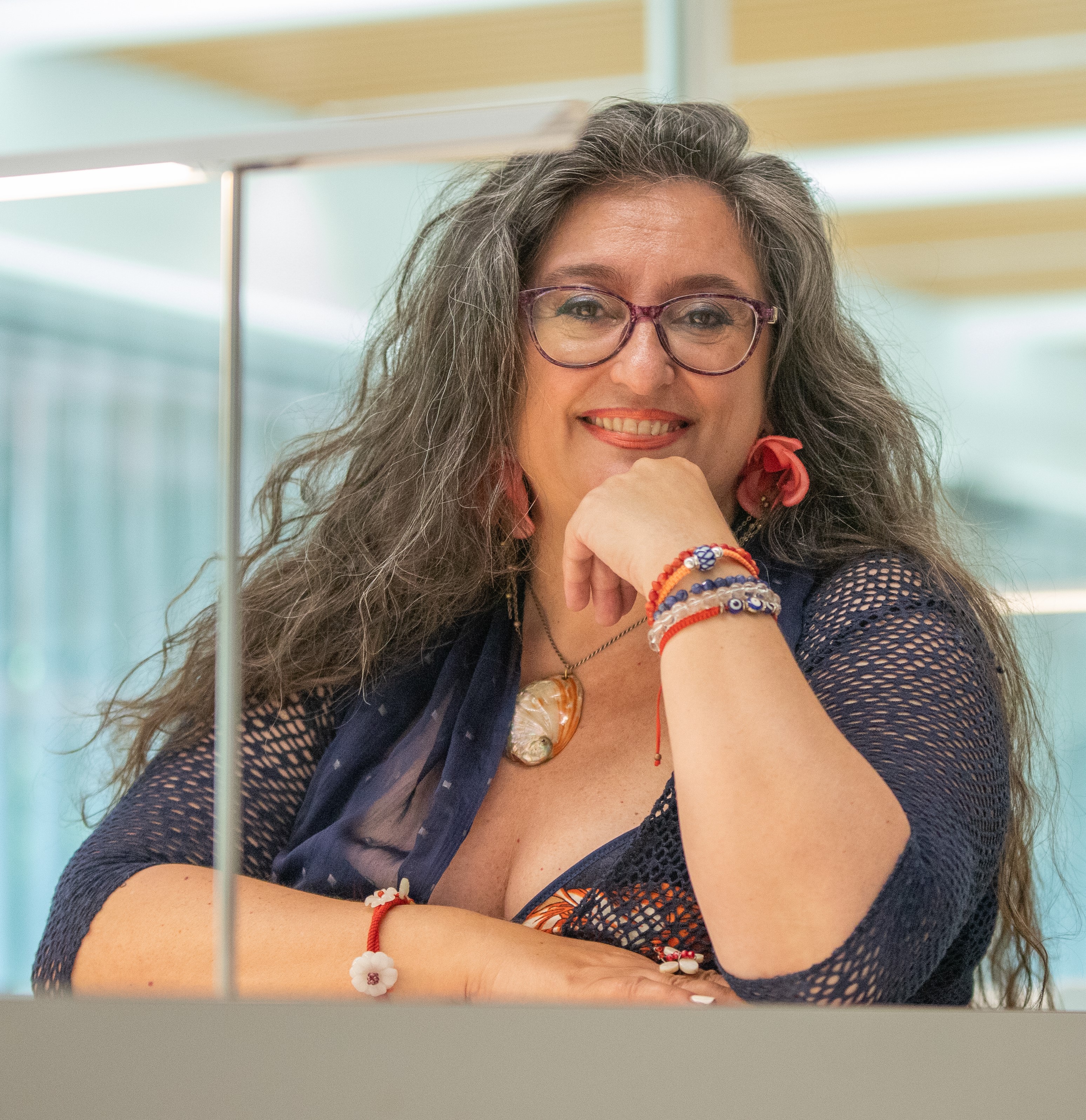
Karina Gibert
Catedràtica a la Universitat Politècnica de Catalunya- BarcelonaTech (UPC). Llicenciada i doctora en Informàtica amb especialització en estadística computacional i intel·ligència artificial. Degana de l’Il.lustre Col·legi Oficial d'Enginyeria Informàtica de Catalunya (COEINF, 2023-). Vicepresidenta del Consejo General de Colegios Profesionales de Ingeniería Informática de España (2023-). Cofundadora ex-directora del centre de recerca en Intelligent Data Science and Artificial Intelligence de la UPC (IDEAI-UPC, 2018-). Experta i coautora de l'Estratègia Catalana d'Intel·ligència Artificial Catalonia.AI (Generalitat de Catalunya, 2018-). Assessora dels governs català, espanyol, la Comissió Europea i la CommonWealth en qüestions d'ètica de la IA i transformació digital. Líder de la CETRA. Comitè d'ètica de les dades (Gencat). Consell directiu del programa IA i Salut. Consell assessor de IA a 3cat, Localred. Treballa per reduir l’escletxa de gènere en STEM. Fundadora de donesCOEINF, DonesIAcat i co-fundadora de Mujeres en Ingeniería Informática i BCN chapter of women in ACM. Ambassador WiDS-Barcelona. Premi WomenTech 2023 (Women360), Premi Nacional d’Enginyeria Informàtica 2023 (Consejo General de Colegios de Ingeniería informática de España), Premi Ada Byron 2022 (Colegio de Ingeniería Informática de Galicia), Premi donaTIC2018 (GenCat). Menció Creu Casas 2020-2021 (IEC). Elected Fellow (international Environmental Modelling and Software Society) 2007.
Ponent
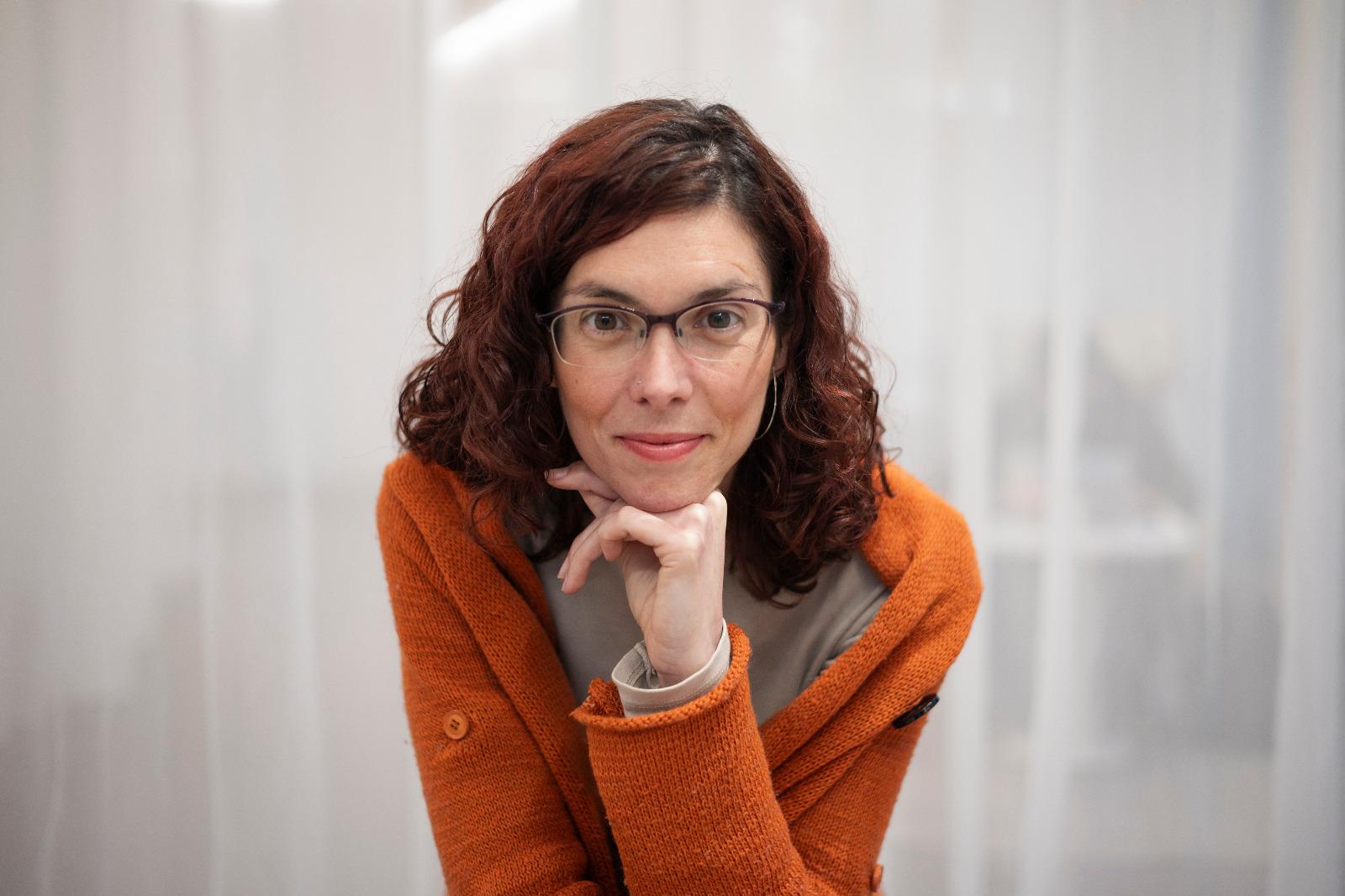
Liliana Arroyo Moliner
És llicenciada en Sociologia per la Universitat Autònoma de Barcelona, doctora en Sociologia per la Universitat de Barcelona i especialista en Innovació Social Digital. Actualment és docent a ESADE. Va exercir com a Directora General de Societat Digital a la Generalitat de Catalunya (desembre 2022 – octubre 2024) i responsable d’Innovació a l’àrea Digital Technology Societies de la Fundació i2cat. La seva trajectòria professional ha estat vinculada al món de la recerca, la docència i la divulgació. Ha participat com a membre de l’equip investigador en projectes de diferents àrees de la sociologia i d’impacte social. Així mateix, forma part de diferents consells assessors en entitats acadèmiques, culturals i del tercer sector i té una dècada d’experiència com a consultora independent. Ha col·laborat en mitjans de comunicació com l’Ara, El Periódico i El País i en programes de RAC1 i TV3, entre d’altres. També ha publicat l’assaig Tu no ets la teva selfie. 9 secrets digitals que tothom viu i ningú explica, i recentment el llibre Benvingut metavers?, sobre el valor de la presència en l’era digital.
Ponent

Makea Tu Vida
Makea és una entitat sense ànim de lucre de caràcter social i educatiu, que treballa en el territori que existeix entre els mons del Disseny i l'Ecologia. Les seves pràctiques van dirigides a fomentar el disseny obert, l'intercanvi de coneixements i la creativitat col·lectiva, aplicats a la reutilització en diferents contextos i situacions.
Des de la creació de Makea com a grup d'acció el 2006, el seu treball s'ha centrat en la generació d'estratègies de participació que visibilitzin la problemàtica dels residus, la conscienciació sobre l'ús dels recursos i els hàbits de consum, i la transformació de l'Hàbitat en les seves múltiples dimensions (espai públic, comunitari i privat).
A través de metodologies de co-creació i disseny col·laboratiu, desenvolupen tallers per a la construcció col·lectiva de missatges, equipaments d'espais, plataformes relacionals (digitals i trobades), artefactes i objectes.
Ponent

Manuel Bedia
Professor Titular a la Universitat de Saragossa. Llicenciat en Física, màster en Estudis Socials de la Ciència i doctor en Enginyeria Informàtica amb Premi Extraordinari per la Universitat de Salamanca. Prèviament va treballar a les universitats Complutense i Carlos III de Madrid i va ser investigador visitant a les universitats d’Edimburg (Institute of Perception, Action and Behavior), Sussex (Centre for Cognitive Science) i País Basc (Centre for Life, Mind & Society).
La seva recerca s’ha centrat en el camp de la Intel·ligència Artificial, els sistemes bioinspirats i la cognició artificial. Ha estat director del grup de recerca ISAAC (Sistemes Interactius, Adaptabilitat, Autonomia i Cognició), reconegut pel Campus d’Excel·lència Internacional Iberus, des d’on va coordinar una acció H2020-Marie Slodowska Curie Cofund (2021-24). Va fundar la “Xarxa temàtica en recerca en Ciències Cognitives”, un marc interdisciplinari en sistemes cognitius format per onze universitats espanyoles i el Consell Superior d’Investigacions Científiques (2011-13).
Ha ocupat diversos càrrecs a l’Administració General de l’Estat, exercint responsabilitats com a vocal assessor al Gabinet del Ministre de Ciència, Innovació i Universitats, subdirector general d’Activitat Universitària Investigadora al Ministeri d’Universitats, director del Comissionat en Nova Economia de la Llengua al Ministeri d’Afers Econòmics i Transformació Digital i director general de Planificació Estratègica en Tecnologies Digitals Avançades al Ministeri per a la Transformació Digital i de la Funció Pública. És membre del Consell Rector de l’Agència Estatal CSIC.
Ponent
.jpg)
Màrius Boada i Pla
Director de l’Oficina Municipal de Dades (OMD) de l’Ajuntament de Barcelona. Llicenciat en Geografia (UAB, 1988), té el màster en Estudis Regionals, Urbans i Metropolitans (UAB, 1990), el postgrau en Sistemes d’Informació Geogràfica (UdG, 1999) i el màster en Analista d’Intel·ligència (UB, 2014). Com a chief data officer (CDO) a l’Ajuntament de Barcelona, la seva missió és l’impuls del govern, l’anàlisi i la difusió de les dades del consistori barceloní per obtenir coneixement per al bon govern de la ciutat i els seus serveis.
Ponent
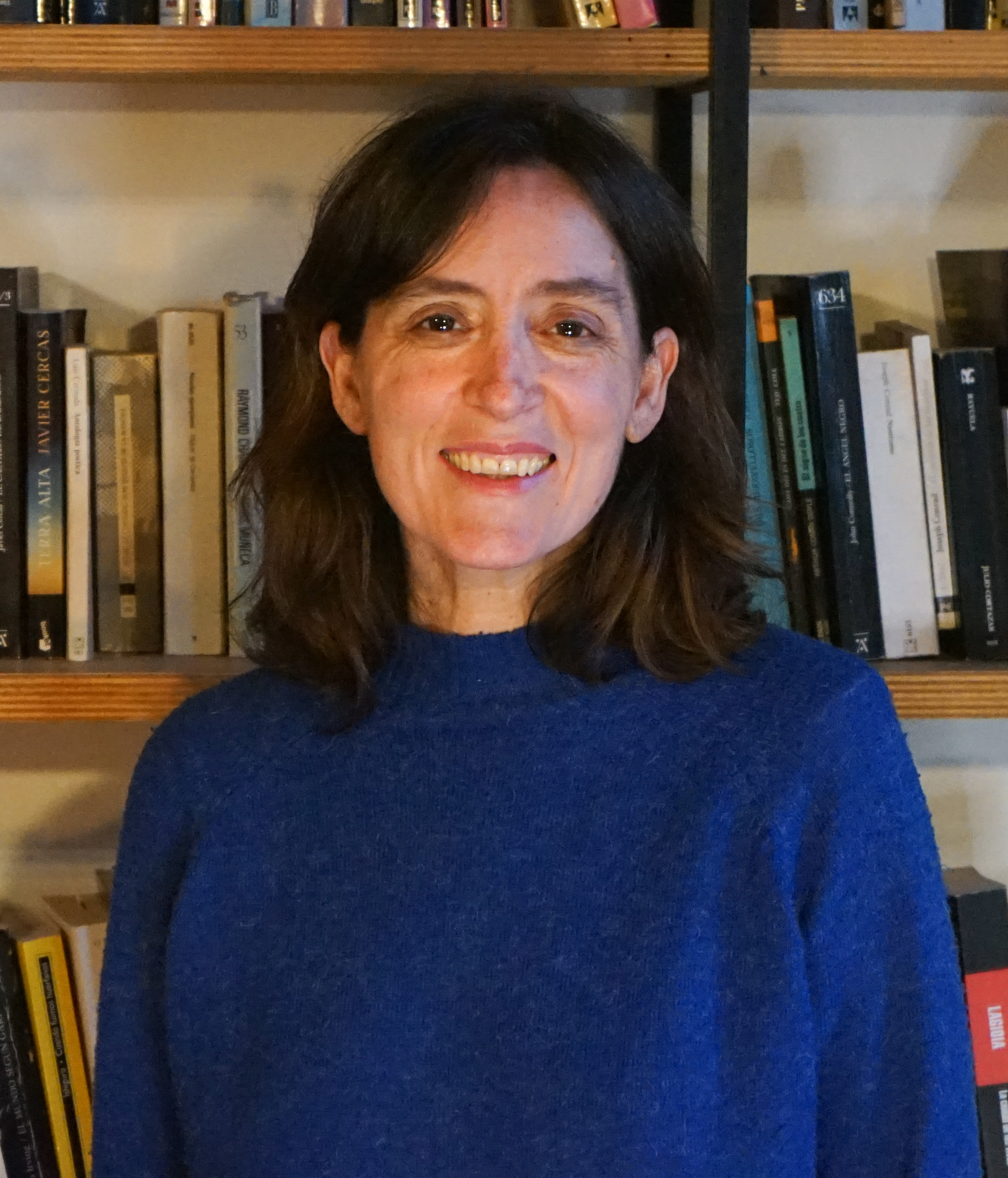
Marta Cruells
Doctora en Ciència Política per la Universitat Autònoma de Barcelona, és investigadora sènior al Barcelona Supercomputing Center, a l’àrea de ciència per a les polítiques. La seva trajectòria combina recerca acadèmica, assessorament institucional i acció política. Va ser directora de gabinet del Ministeri d’Universitats del Govern d’Espanya (2020–2023) i anteriorment va coordinar les àrees de Feminismes i Relacions Internacionals de l’Ajuntament de Barcelona (2015–2019). Ha centrat la seva recerca en desigualtats socials, interseccionalitat, gènere, sistemes penals i polítiques públiques, i ha treballat com a assessora per a administracions públiques i entitats en àmbits com l’avaluació, la igualtat i la política científica i universitària.
Ponent

Marta Pérez-Verdugo
Actualment realitza la seva tesi doctoral al grup IAS-Research del Departament de Filosofia de la Universitat del País Basc/Euskal Herriko Unibertsitatea (UPV/EHU). És graduada en Psicologia per la UAM i ha cursat màsters en Neurociència i en Filosofia. La seva recerca actual explora com el disseny tecnològic modela l’agència i l’autonomia humanes en l’ús de plataformes digitals des d’una perspectiva interdisciplinària que inclou les ciències cognitives, la filosofia de la tecnologia i la Interacció Humà-Ordinador. Com a part de la seva tesi, ha estat investigadora visitant al Departament de Filosofia de la UC Berkeley (EUA) i a l’Institut for Datalogi de la Universitat d’Aarhus (Dinamarca).
Ponent
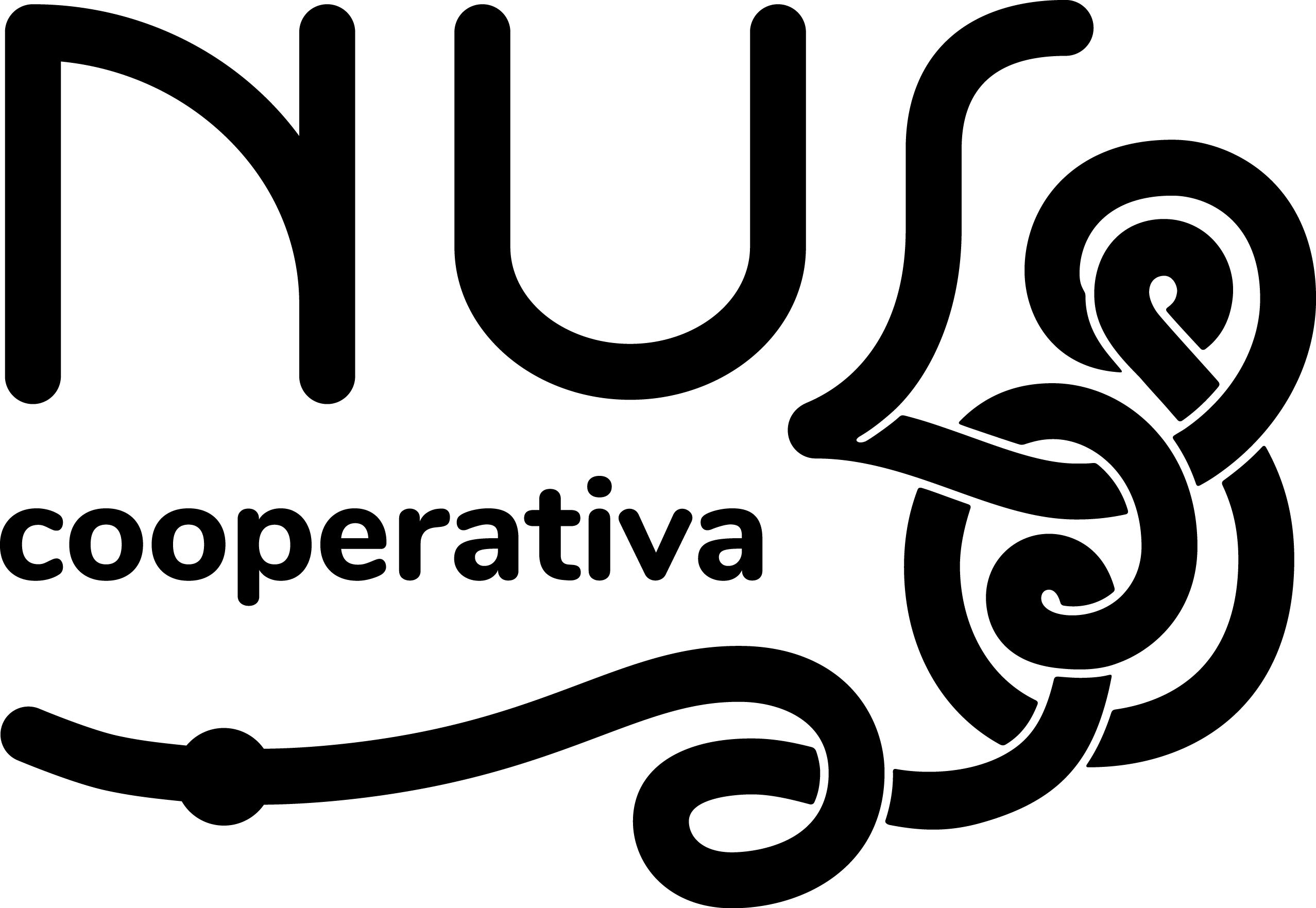
Nus Cooperativa
Cooperativa sense afany de lucre integrada per un equip interdisciplinar de professionals de les arts escèniques, el món social i les economies feministes. Desenvolupen accions i processos transformadors amb perspectiva feminista i comunitària, des de la creativitat i la cura, per tractar temàtiques socials i visibilitzar i transformar les relacions de poder.
Ponent

Ojalá esté mi Bici
Esperen generalment que la seva bici estigui on l'havien deixat. També organitzen concerts com poden per als grups que els agraden i que mai toquen a Barcelona perquè està plena de moderns que prefereixen la música enlatada o que només van a festivals. Si vostè és una d'aquestes 113 persones que no són així, llavors és un/a d'ells/es.
Ponent
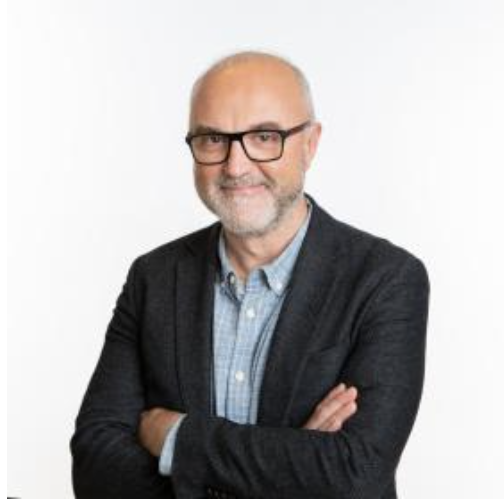
Oriol Estela Barnet
Economista i geògraf. Professional del desenvolupament local i la planificació estratègica des del 1995, primer en la consultoria per a administracions públiques (1995-2005) i posteriorment a la Diputació de Barcelona (2005-2016), així com de manera freqüent en conferències, activitats formatives i publicacions diverses. Vetlla pel compliment dels objectius del PEMB i dirigeix l'oficina de coordinació.
Ponent

Patricio Reyes
Investigador sènior del Grup d’Anàlisi i Visualització de Dades del BSC. Dirigeix la línia d’investigació Urban Data Science, que se centra en solucions basades en dades per a la planificació urbana. L’enfocament multidisciplinari es reflecteix en la diversitat de col·laboracions: experts en visualització, geografia, urbanisme, programació, responsables polítics i investigació.
Ponent
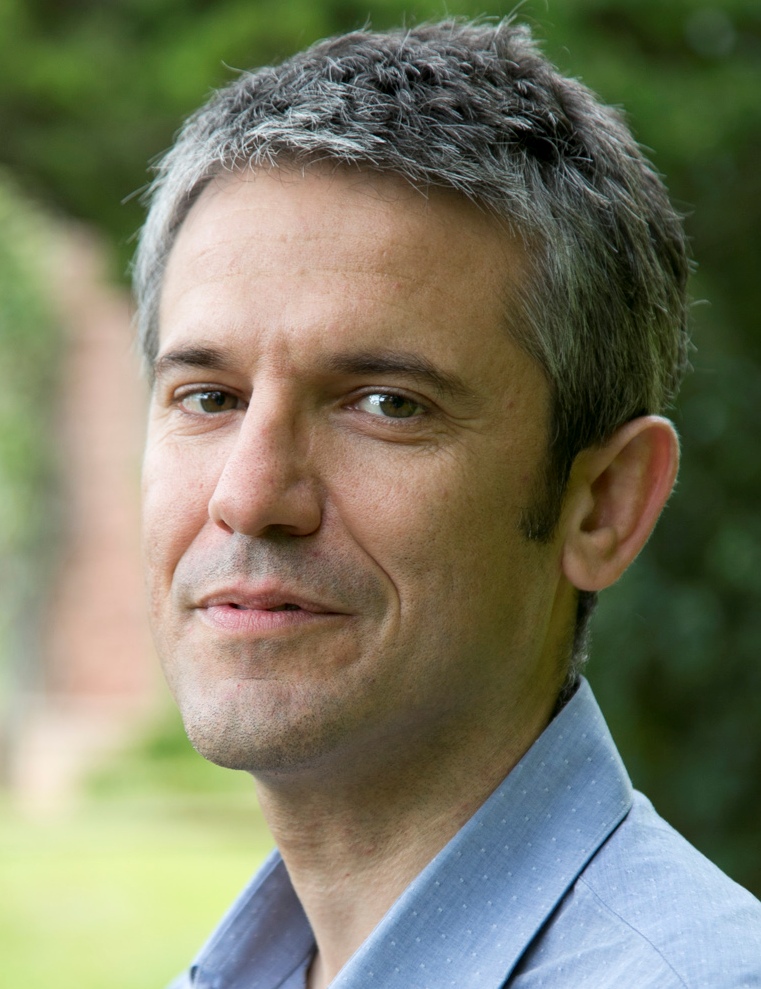
Pau Balcells
Tècnic de programes a l’Oficina Municipal de Dades de l’Ajuntament de Barcelona, dedicat a la governança de dades i a promoure polítiques públiques basades en dades, actuant com a enllaç amb l’ecosistema nacional i internacional de dades (actors públics i privats). Entre els principals assoliments de la seva feina destaquen la “Mesura de Govern per a una Gestió Ètica de les Dades” i el projecte europeu “DECODE”. Porta més de 15 anys treballant en recerca i innovació, actualment en l’àmbit de l’economia digital, desenvolupant ciència de dades per millorar l’elaboració de polítiques i l’avaluació de programes. Anteriorment, havia treballat en centres de recerca en salut, vinculat a la genòmica, epidèmies i vacunes (incloent-hi la vacuna contra la malària recentment aprovada).
Ponent
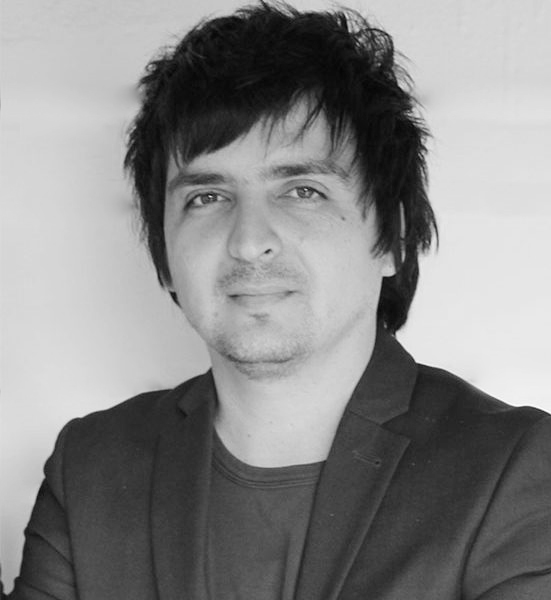
Pedro Ignacio Alonso
Doctor en Arquitectura per The Architectural Association del Regne Unit i cap del Doctorat en Arquitectura, Disseny i Estudis Urbans de la Universitat Catòlica de Xile (UC). Va obtenir el Lleó de Plata de la 14a Biennal d'Arquitectura de Venècia pel Pavelló de Xile Monolith Controversies (2014), juntament amb Hugo Palmarola. Junts van comissariar l'exposició Flying Panels a ArkDes, Estocolm (2019–2020). Ha publicat The Additional Element in Architecture (MIT Press, 2025), amb Paulina Bitrán. Alonso és comissari de Deserta Ecofolie, juntament amb Pamela Prado, a la 19a Biennal d'Arquitectura de Venècia (2025). També va ser comissari de l’exposició Com dissenyar una revolució (2023–2024), on va realitzar la primera reconstrucció de la sala d’operacions de Cybersyn, amb Hugo Palmarola i Eden Medina. Junts van publicar el llibre How to Design a Revolution (Lars Müller Publishers, 2024).
Ponent

Red Feminista Antirracista Chilenas de Barcelona
Fundada el 2019, treballa des del feminisme i la lluita antiracista per transformar les desigualtats socials, polítiques i econòmiques tant en el seu país d’origen com en el mon. Com a dones del sur global al nord global la xarxa s’enfoca en problemàtiques de racisme, migració. violència de gènere i colonialisme, promovent espais de reflexió, creació artística i denúncia.



Compartir